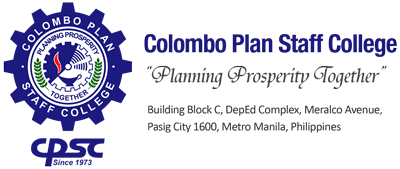
DATE: August 31 - September 6, 2021 |
PROGRAM CODE: 21-22/CPDBAC (Customized Program) |
PARTICIPANTS' PROFILE: The participants of the program are Directors, Department Heads, supervisors, managers of TVET Centers/Institutions of the Don Bosco Tech ASEAN. |
The issue on the “quality of TVET” for both institutional and program aspects are no longer perceived as an internal concern, thus, this becomes serious issues of all the concerned stakeholders. Quality Assurance (QA) system reinforces responsibility and accountability to all TVET leaders and also ensures quality program outcomes. Furthermore, QA underpins on effective managing and utilizing of all Technical Vocational Institutions (TVIs) resources and encourages participation of all in carrying out planned programs with unified mission, vision and goals.
Furthermore, accreditation requires self-assessment or self-evaluation to encourage the TVIs to conduct IQA (Internal Quality Assessment/Audit). This is to check TVI’s standard operations and work procedures. Moreover, accreditation involves gathering of information relevant to the required standards of the accreditation body.
It may likewise unearth the strengths and weaknesses of key personnel. Self-evaluation is regarded by many institutions as the most valuable of the entire accreditation process because it focuses the attention of key and senior administrators and remains the best way to assure academic quality and accountability (American Council on Education, n.d.), thus, the self-assessment or self-evaluation creates positive impact on the TVIs work process and procedures.
This program is designed to assist the Don Bosco Tech ASEAN in providing awareness on the concepts and principles of quality assurance in order to pursue baby steps towards harmonizing quality TVET standards among its ASEAN member countries of the Don Bosco Tech, a compliance committee and eventually establishing its accreditation systems.
The program is a training workshop type to provide capacity building in recognizing the difference between institutional accreditation and program accreditation requirements including assessing the TVIs’ general readiness to undergo
accreditation. Some group work activities will also equip the participants with deeper understanding and appreciation of the importance and benefits of quality assurance towards drawing up an accreditation system.
At the end of the program, the participants will be able to:
- Recognize the difference between institutional accreditation and program accreditation requirements.
- Assess the TVIs general readiness to undergo accreditation.
- Identify the requirements of program accreditation.
- Determine the requirements of institutional accreditation.
The expected outcomes of the Program are:
- Answered short exercises
- Assessed TVI Readiness to undergo accreditation
- Basic accreditation guide
The delivery of the online program design follows a spiral learning approach, beginning with overview of core concepts, to be followed by progressively deeper application of the concepts and finally, a self-directed learning approach through action planning.
The main contents of the program are:
Presentations:
- Presentation 1: TVET Quality Assurance Practices in Asia and the Pacific
- Presentation 2: Overview of TVET Quality Assurance System
- Presentation 3: APACC Accreditation as External Quality Assurance
- Presentation 4: TVET Accreditation (Institutional and Program) Requirements
- Presentation 5: Establishing Accreditation as Quality Assurance to Harmonize Quality TVET Standards/Criteria
Group Work Activities:
- GWA 1: Answering Short Exercises
- GWA 2: Accreditor’s Performance Task
- GWA 3: Determine the TVI readiness to undergo accreditation
- GWA 4: Develop basic accreditation guide
To facilitate productive and interactive learning, the following instructional strategies will be utilized to effectively train the participants:
Different instructional methodologies will be utilized to effectively train the participants for this short-duration program. Some of these methodologies are listed below:
- Virtual lectures
- Group and individual tasks
- Workshops and exercises
- Role-playing and presentations
- Case scenario
To conduct the program smoothly, each participant should have:
- Laptop or desktop computer with the following minimum specifications:
- Intel Core i3 CPU (equivalent or higher)
- 8GB RAM
- 240GB Storage
- Webcam
- Earphone with microphone (laptop speakers and mic can also be used)
- Zoom and HTML5 compliant web browser (Chrome, Edge, Firefox, etc.)
- HTML5 compliant smart phone (Android or iPhone)












